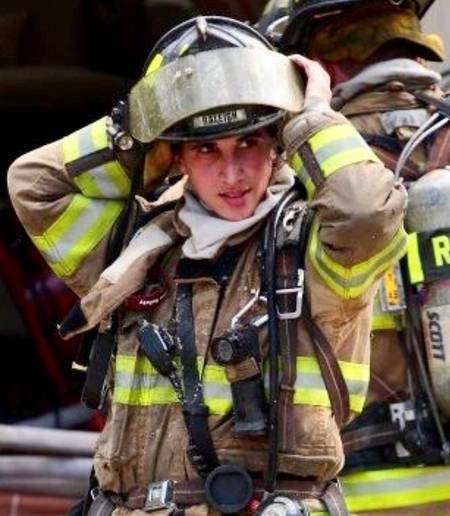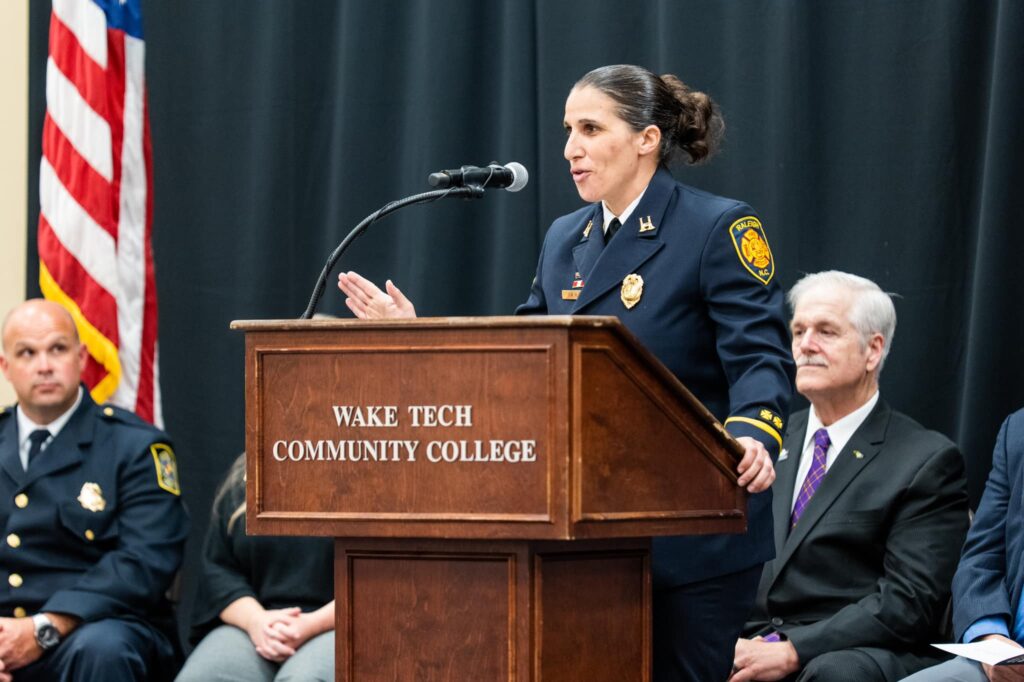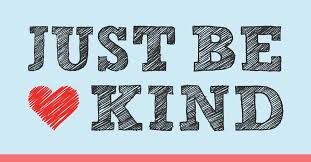By: Dena Ali, Battalion Chief, Raleigh (N.C.) Fire Department
Note from Chief Avsec: This is the second part of the keynote speech that Chief Ali delivered to the 13th Graduating Class of the Wake County (N.C.) Fire Academy. Read Part I here.
Now to the meat of my keynote and why I believe I was invited. You see, we are at a new phase in first responder mental health where we are finally addressing the true causes of our struggles.
When I heard the following quote from late Bishop Desmond Tutu, I finally understood what we need to start doing to address first responder mental health challenges. He said:
“There comes a point where we need to stop just pulling people out of the river. We need to go upstream and find out why they’re falling in.”
South African Anglican Bishop Desmond Tutu
How do we do this?
I implore you all to take care of yourselves. Sleep adequately, practice gratitude, keep a journal, keep relationships, learn to meditate, and ensure that you create time to laugh and do things you enjoy. There is fascinating research out there that says all the above-mentioned increase heart rate variability, which thereby increases your resiliency both physically and emotionally.
If you do not want to end up depressed, anxious, or with PTSD, make time for play and rest! Sleep well, express daily gratitude, enjoy naps, and laugh.
Now for the harsh reality of our lives and of this profession.
There is a powerful quote in the movie “Rocky,” when he told his son, “The world ain’t all sunshine and rainbows. It’s a very mean and nasty place, and I don’t care how tough you are, it will beat you to your knees and keep you there permanently if you let it. You, me, or nobody is gonna hit as hard as life. But it ain’t about how hard you hit, it’s about how hard you can get hit and keep moving forward.”
If there is one thing, I want to pass on to you all, it’s this: who we are today is not who we have to be tomorrow. At any point, a small adjustment in our course will affect profound change in our future.
The best and worst advice that I was given while in the academy was that my reputation on day one would follow me my entire career. Though this advice helped me to understand the importance of a strong work ethic, it also instilled early on the belief that I was entering a zero-defect environment where I had to be perfect.

From day one I cared more about what others thought of me, rather than who I knew myself to be. I feared criticism and wanted to “shrink” myself to stay off the radar. It led me to judge others based on what I was told, and it led me to fear criticism. I wish I knew then what I know now:
- We can’t escape criticism or please everyone.
- Sadly, some people who are not happy with themselves become critical of others. What they hate about themselves, they use to attack others.
- Those who are confident in who they are will spend their days bettering themselves and have little time to criticize others.
Just remember, when we minimize ourselves and fear the criticism of others, we do not live our best lives.
None of us are perfect, but we’re all capable of transforming our gifts of imperfection through resilience into growth. Early in my career, I was exposed to the mean and nasty parts of the fire service. I was hit hard and beat to my knees. While in that bad place, I didn’t care what happened, because, to me, it was easier to stay down than it was to get up and push forward.
Even worse, I didn’t know if I could get up, or that I could move forward. I allowed my pride to own me, and I kept my suffering to myself. I was so humiliated that I feared being exposed. I didn’t want anybody to know I was imperfect. I was willing to hide behind my shame because I didn’t think anybody else could relate to my struggles.
However, I was fortunate enough to have mentors who saw the potential in me that I couldn’t. They refused to let me give up on myself. They pushed me to keep moving forward. And by moving forward, I learned a valuable lesson: We’re all broken at some point, and as shared by the poet and philosopher, Ralph Waldo Emerson, “Many are stronger at the broken places.” Not all, but many.
It takes strength to persevere beyond our perceived or true weaknesses. Strength allows us to open up about our struggles and own our imperfections. We must realize that we are all capable of becoming resilient. However, transforming imperfection into resilience requires a deliberate effort, persistence, and understanding of self. The key to understanding self is a willingness to talk to those in our circles who have earned the right to hear our stories. Despite the hype, none of us can go it alone, we all need support.
We have the power to change the lives of others, too, by knowing our own darkness well enough to walk through the darkness with another. All humans are hard wired for connection, and each one of us has the power to support another. We must be courageous enough to understand that our brotherhood/sisterhood extends beyond the majority. We must stand up to perfectionism and recognize that it coexists with shame and blame. Perfectionism is different from healthy achievement or excellence; it is the shield we hide behind. Mistakes are inherent in life, and so are the feelings of shame, blame, and judgment.
Finally, we must admit that because the fire service is a microcosm of the world we live in, sometimes, we can be mean and nasty to those who do not fit the mold. We must have the courage to stand by those who need us by recognizing when they are being taunted, ostracized, or ignored.
Fear less about your reputation, and rather, be concerned more with your character.
Always be kind. You truly never know the power of a simple act of kindness. Congratulations and welcome to the best profession in the world!
About the author
Dena Ali is a battalion chief with the Raleigh (N.C.) Fire Department. Prior to becoming a firefighter, she served five years as a police officer. She has a master’s degree from the University of North Carolina Pembroke, where her research focused on firefighter suicide. Ali is an adjunct instructor with the NFA and the founder and director of North Carolina Triangle Peer Support. She is an avid fitness enthusiast and cyclist and was recently named the 2022 Remarkable Women Winner for Central North Carolina.
 Fire & EMS Leader Pro The job of old firefighters is to teach young firefighters how to become old firefighters!
Fire & EMS Leader Pro The job of old firefighters is to teach young firefighters how to become old firefighters!

